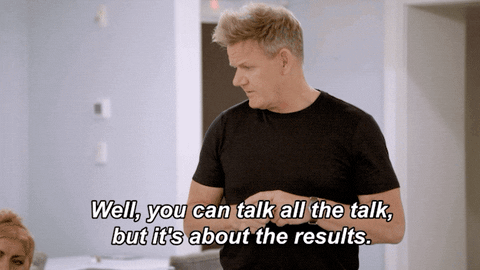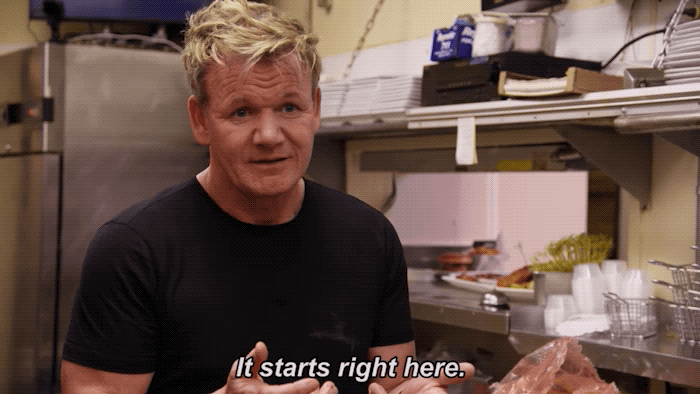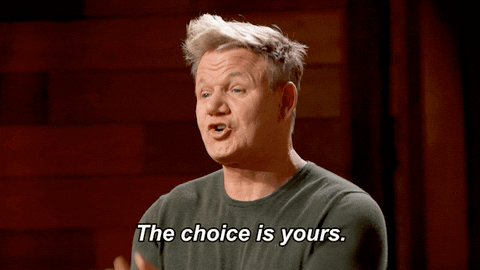Agency CEO nightmares: Learning the hard way
Only yesterday, I was on a call with an agency leader who told me:
"I feel like we keep learning everything the hard way."
And it's probably one of the things I hear most frequently from founders — often with a wince of pain at the time, money and stress that's been sunk into some tough lessons.
"Oh god, so many bang-your-head-against-the-wall mistakes. The worst."

As we'll hear in more depth in another instalment in this series, founders realise that the ultimate responsibility for everything that goes wrong in the business rests with them:
"Mistakes happen and there's not really anyone else to blame them on."
"For a long time I blamed everyone else but myself. It’s a hard pill to swallow, but if your business, or life, isn’t going the way you want it to, you are in part, or wholly, to blame."
So things go wrong, sometimes daft things, and the leader has to take responsibility. That's normal enough.
But one of the things I observe in mentoring agency leaders, and seeing issues raised in agency communities, is that the problems that happen are rarely novel. These are problems that have had to be dealt with by many, many agency leaders before. Yet founders are regularly going through needless pain by approaching them from scratch.

First-time leaders
Earlier in the year, we convened the Agency Senate of respected agency CEOs, whose opinions and expertise we poll every month. These people are highly successful — but over 75% of senators said that they were in their first business leadership role:

The mean age of Senators' agencies is 10 years and they have achieved a high level of success, so, in the broader agency community where the average age of the business is younger and at an earlier stage, it's likely that even fewer founders have prior business leadership experience.
Agencies are often started by practitioners. They're really good at design/PR/coding or another specialism, so they leave a job somewhere and start an agency.

It's that expertise as a practitioner that clients hire them for, and so their agency grows. But then the agency begins to be big enough to be a 'real' business with all the challenges and responsibilities that go with that. And founders have to learn all of that stuff as they go.
Running around
The tricky thing is, it doesn't feel like you're learning the hard way until afterwards. At the time, it just feels like "All this stuff is happening, I need to run around and sort it all out quick!" Only afterwards do you realise you ran headlong into a big screw-up, or went a very long way round to get to the solution.
This is most often the case in the Step-up phase, as the agency grows between 10 and 30 people. In this phase the founder needs to leave the heady chaotic Start-up days behind, and step up to become the leader, with more of a structure and process — and drawing into the company lessons and experience from outside.
But the business isn't yet at the stage, from a headcount of about 30ish, of having a fully-experienced cross-functional leadership team that handles everything. It still relies totally on the founder.
It can then be hard for that founder to admit to themselves or others that they don't know the answers. They don't want to worry staff by admitting they feel out of their depth. They want to portray themselves and their agency as successful, so it can be hard to talk openly about problems to people outside the business.
Sometimes it can be ego and bravado, but more often it's just this automatic response learned from the start-up days, but applied to a business that has grown to have a much broader set of challenges to face, and much more complexity behind each challenge.
That's when the real potential for learning the hard way comes, and when the lessons are more costly and risky to the business — as well as more stressful for the founder.
But I can promise you, there isn't a single agency founder, me included, who hasn't completely screwed up really serious things in each stage of agency growth — but especially in that Step-up stage. So never feel bad about seeking help or advice.
You also don't need to run around quite as fast as you did in the start-up days. It's worth lifting your head from today's challenges and looking ahead a bit to see what you can learn from others in advance of future challenges. How can you get ahead of the problems and proactively design your agency to minimise them?
More than admin
A typical pattern I see first-time agency CEOs fall into is becoming ‘practitioners who do admin’ rather than becoming leaders of a business.
The admin feels like something concrete to get to grips with — doing the accounts, the taxes, solving HR problems, and so on. But these are all operational-level issues. As your agency grows you should hand that level of stuff to others.
Right from the start, and even more so as you grow, you need to make sure you are setting aside a part of your time — and a part of your brain, too — to focus on what I refer to as the ‘higher altitude’ things in the business. From that higher altitude you need to see further ahead and more widely, too. You need use that higher view to think about things well before they become a current issue.
This is the hardest thing for new leaders to learn how to do.
Hard problems
The nature of the agency business means you, as the founder, will face more complex problems. That's because:
- agencies are more focused on people, and their interactions and collaboration, than other businesses;
- agencies exist to act as shock absorbers between clients and a chaotic and changing world, so are at the frontier of what's new and emerging;
- agencies have to split their focus and time between solving problems for clients and solving problems for their own business. It's not until agencies are a bit larger that they can have people whose only focus is on the agency.
And the problems that then reach the leaders desk are also more complex and nuanced:
"Most decisions I have to deal with are 51/49, because the obvious decisions don't require any thinking or input from me. I only get the difficult stuff."
So agency founders are often in their first business leadership role, dealing with complex problems — and needing to learn rapidly as they go.
But that doesn't mean that all the learning needs to be done the hard way. There are ways to learn and address problems without wasting so much stress, time and money.
Solutions

One leader in our research summed up the combination of things we heard from many successful agency CEOs:
"If I don’t know how to do something, rather than see it as a dead end, or ‘not for me’, I now see it as an opportunity to grow and find out more. If I can’t get help from books or podcasts, then I know to reach out to others for help, paid or otherwise."
We found lots of founder CEOs who loved to find ways to fit learning in around their busy lives, such as reading business/leadership/agency books and blogs. Many listened to podcasts or audiobooks while they were travelling, out for walks, cooking, or in other downtime. These are all great ways to learn in a few minutes or hours from years of experience by other people. Like powerpacks for your brain.
Agency CEOs also often turn to their networks for peer learning, asking questions in agency communities, to friends who run agencies, or asking other agency leaders they respect for coffee. If you do this, make sure to also learn from others at the leadership and business level, rather than just picking brains about operational things. Your agency leadership role is about more than admin.
As we heard in the last article in this series, founders also often turn to coaches and non-executive directors. In part this is because they can bring into the business the knowledge and experience from their own prior work, and what they've seen in other agencies. The right people in these roles can help the leader work on the 'higher altitude' things, but inexperienced people in these roles will keep the focus down on operational-level things. So make sure you get people who can do the leadership level thinking.
For learning on operational level things, agencies in the Step Up phase (10–30 staff) often bring in 'fractional' experts, such as part-time finance directors or HR managers, or specialist consultancies or advisors, and agencies in the Smarten-up phase recruit full time specialists into the business.
But we also found there was a thirst for more learning from agency leaders. They know others have solved the problems they face before, but felt that the knowledge is still too dispersed, and hard to find. So we've taken the findings from our research into developing some of the key services we offer agency CEOs, including the Agency Leaders Playbook — an ever-growing manual based on in-depth research with other agency CEOs and our analysis and expertise.
This Playbook sets out a framework for how to run an agency, based in both experience and research, and our programmes, provide the wrapper of coaching and support to implement the framework. That way you can learn from others who have been there before, and have rather than learning everything the hard way.
On the Step-up programme, for agency CEOs on the journey between 10 and 3o staff, we place CEOs in a cohort with three peers so they can also learn from each other, as well as from me and the rest of the Convivio team, and external specialist coaches.
So there's a wide range of ways in which you can benefit from the learning those who have been before you on this crazy journey of building creative agencies.
The best approach is to pick a few of the potential solutions above to build the support you need for the kinds of challenges you're likely to face. you can review it on a regular basis to see what's working and what's not.
You don't have to always learn the hard way, and you don't have to do this alone.

The rest of this series
This post is part of our series on Agency CEO nightmares, looking at these five key themes our research uncovered:
- Introduction
- Lonely and isolated
- Learning the hard way <- this post
- Stuck in reactive mode
- The rollercoaster ride
- The weight of responsibility
If you are the owner, founder, director or CEO of an agency, follow along with this series and see what resonates with you, and what you might want to do to make 2022 your best year yet.

Keep reading...
Agency CEO Nightmares: Stuck in reactive mode
Or check back over the whole Agency CEO Nightmares series, and follow us on LinkedIn or Twitter to be notified about our future posts.
We can help...
...you fall in love with leading your agency again, with the support of your virtual advisory board. Let's get started.
